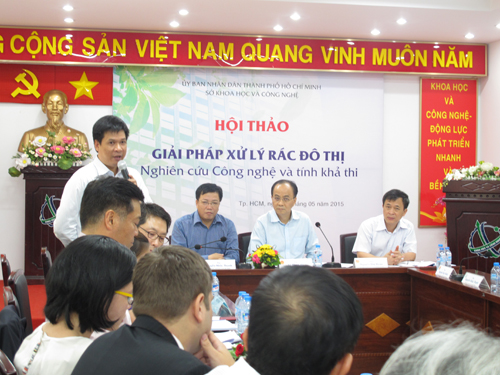Thursday, 05/03/2026 | 15:42 GMT+7
In the workshop participation, there are representatives of the Ministry of Industry and Trade, Environment & Industry Association of Vietnam, representatives of departments, agencies and scientists, and experts from HCM city based universities and institutes operating in the fields of waste disposal.

Currently, with a population of over 9 million people, the total volume of municipal solid waste generated in HCM city is estimated at 7500-8000 tons/day. Most of this volume of waste, including hazardous waste, is disposed of by dumping, which leads to water pollution, soil pollution, odor and gaseous emission, increasing the greenhouse effect.
To solve the problem, in recent years, the city authority has made investments in various solutions for disposal. However, due to scanty land site in the city, while the amount of waste is increasing, at an estimated rate of 7-8%/year, the city authority keeps on looking for more useful and practical solutions.
The workshop "Solutions to Urban Waste Disposal - Research into Technology and Feasibility" is to refer to policies, technologies, effective investment solutions as well as the opinions of experts, so that the City leadership could make a choice for investment as well as the optimal technology for the city.
In developed countries, many modern technologies are already applied in wastes collection and processing, thus to solve the problems of pollution, urban aesthetic issues, to make use of the wastes, to use the residue as fertilizer, and collect gas for electricity generating.
The workshop "Solutions to Urban Waste Disposal - Research into Technology and Feasibility" is also an opportunity for companies to introduce the technology in efficient disposal of wastes from Japan, South Korea, and Finland, analysis of the pros and cons for appropriate application in HCM city.
According to experts, if the waste recycling technology is well applied, the models in gas recollection will contribute to reducing greenhouse gas emissions as much as 0.68 tons CO2/ton of wastes. Particularly, if the alternative energy sources are used to add up to the fossil energy, it would be a significant contribution to the energy sector.
Trong Tan







